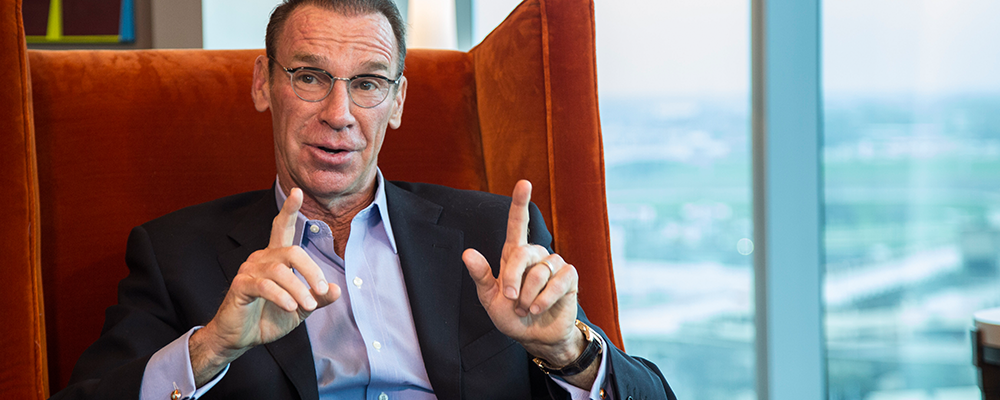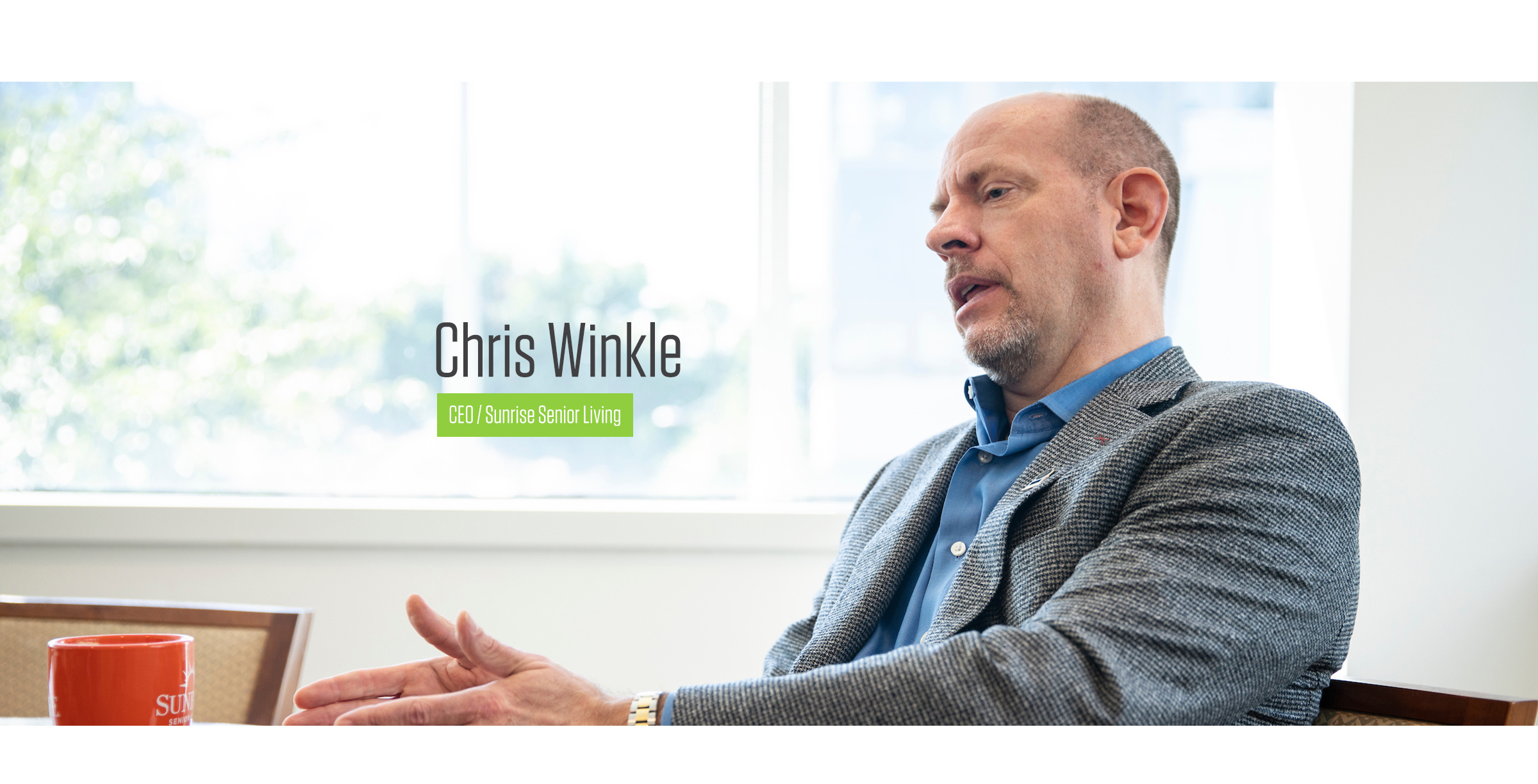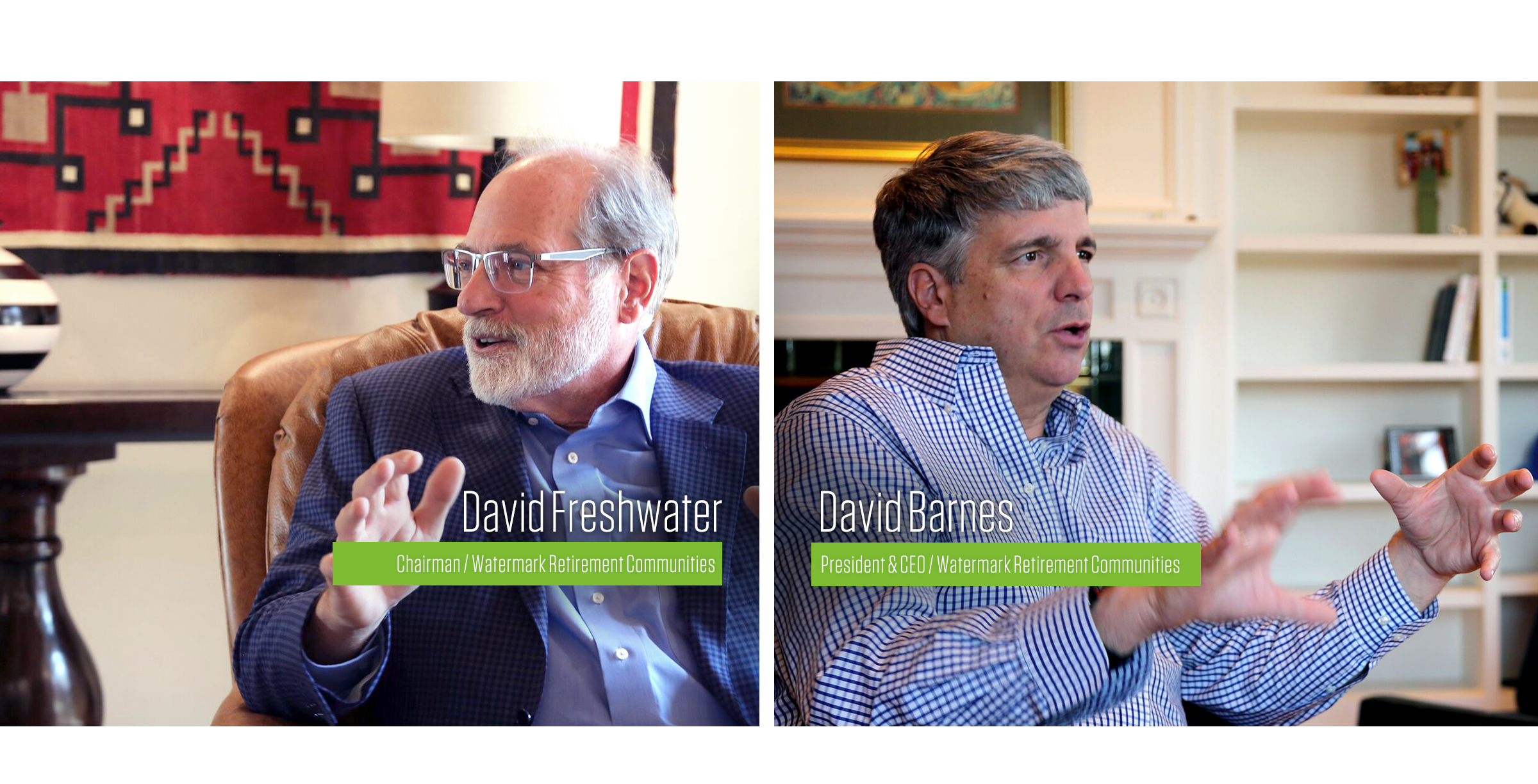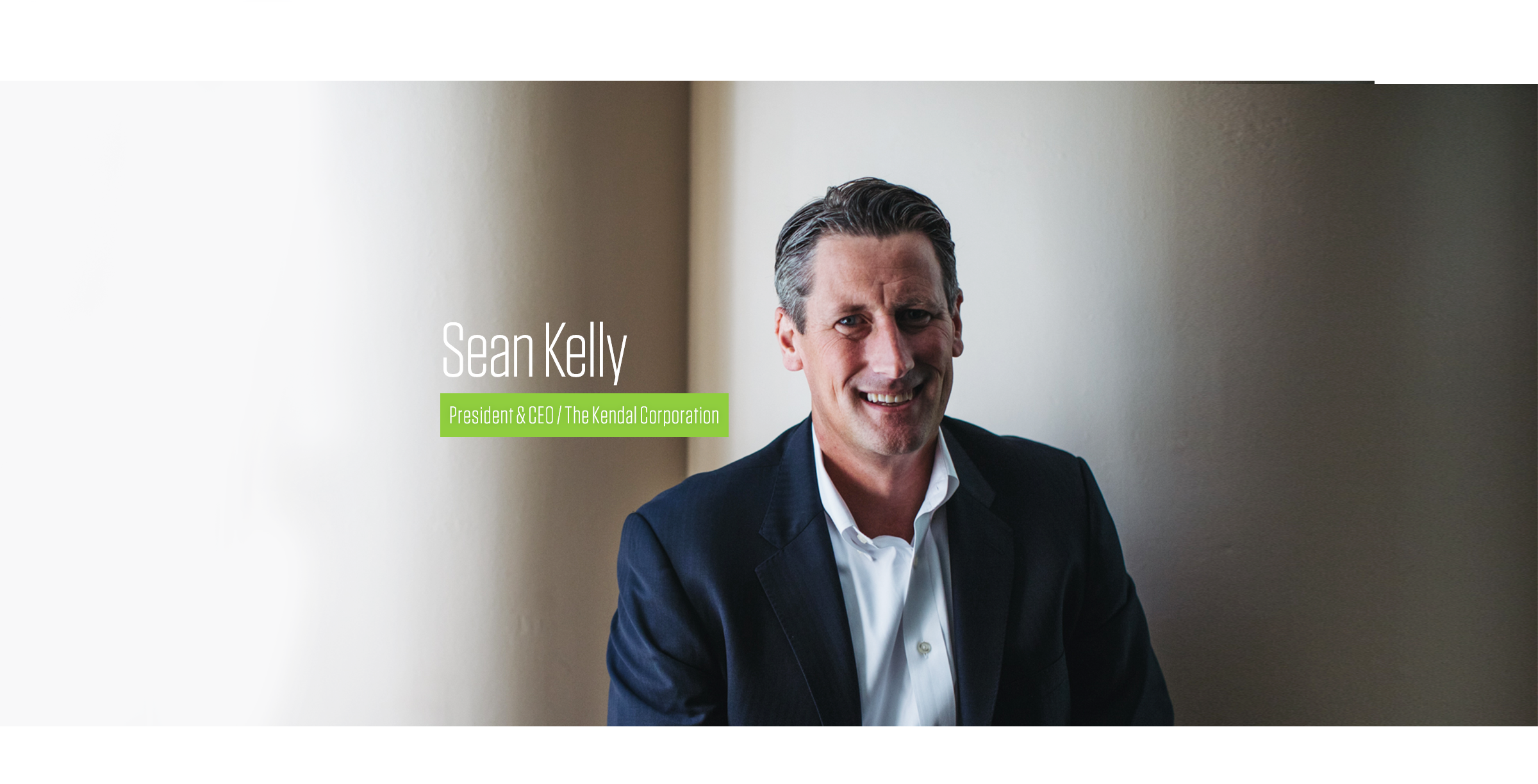Meet Arnold Whitman, founder and chairman of Atlanta-based Formation Capital. Whitman founded the company in 1999 after a “tsunami” of negative events, including the credit crisis of 1998, a change in the prospective payment system and a host of liability issues. Having spent 15 years in the senior housing business at that time, Whitman decided to shift his approach from debt to equity. With more than $6 billion in transactions to date, he hasn’t looked back.
Today, Formation Capital is an active senior housing investor and “Arnie” has personally made a name for himself in the industry as Chairman Emeritus of the National Investment Center for Seniors Housing and Care (NIC), as co-chairman of Genesis Healthcare, as a partner to Aging2.0 and more. We sat down with Arnie to hear his definition of leadership, how a big risk can pay off and why senior housing provides a unique upside not found in other industries.
Take me back to the early days of Formation. What did your first investment look like?
We had a nice business plan and were very fortunate in that we secured our first transaction in Florida by acquiring (or trying to acquire) 53 facilities from Beverly Enterprises. It was 49 skilled nursing and four assisted living buildings for $165 million in July 2001. My partner and I put down all of the money that we had, literally.
We did that because we had debt and equity lined up alongside us, and said ‘OK, we’re ready to go, we’re going to make our first big investment.’
Florida was under huge pressure from all of the trial lawyers that were suing for anything they could as far as liability went at the time. In Florida, under the patient rights bill, if you served cold food, you could be sued. It was a very negative environment and all of the public companies were trying to get out of the state at that time. We had gone to Beverly, made this deal, we had the deal under contract, and we were thinking, ‘OK, we’re going to be on the map.’
Then 9/11 comes.
Two weeks later we went to New York to see UBS and Black Acre (which was our equity partner), and both of them bailed.
Now, we had had firm contracts with them to finance us. They used what’s called an MAC clause, [which address the possibility of a] material adverse change, to say ‘We are no longer going to do this deal.’ Everybody was, as you know, stunned.
The Trade Centers had come down, capital markets had crashed, everything was negative. So we were sitting there, everything we had on the table, and wondering, ‘Are we going to survive? Are we going to get through this? And what’s going to happen?’ My partner Steve Fishman and I literally pounded the pavement in New York looking for a way to finance that deal. It was pure desperation.
It took us about three months. There were a lot of threats thrown at us from Beverly Enterprises. If you’d been there you would have just been stunned.
What kind of threats?
We ultimately did the deal with Citibank and they saved us. Beverly Enterprises, who had us under contract, had a right to take our deposit.
We hadn’t performed because we had lost our lenders. We were sitting four blocks from the World Trade Center in Citibank. You could still see the soot from the World Trade Center that had come down. One particular guy from Beverly Enterprises was banging on the table and saying, ‘We’re going to take your money, you have 30 days!’ We knew we were stuck. It’s one of those moments when you think, ‘Has this guy got any empathy at all?’
Were they just trying to get a good deal because they knew they had you?
A good deal would have been one thing, but it was also very innovative. Needless to say, we were able to finance the transaction at the time with Citibank. The impetus for that was that we separated the real estate and operations when we bought these assets. All of the old liabilities went with the company and we assumed responsibility of those assets going forward. This what the bankers of Citi did, which was brilliant. They said, ‘Worst case scenario we’re not going to see realization of any of these claims take place [on] Day One for two years.’ Without that cost of litigation and without the cost of insurance, the cash flow was huge. We were buying these assets at a relatively low price based on normal business and took a larger piece of equity to finance the deal. Ultimately it worked out to be fantastic. We sold those assets three-and-a-half years later for over $400 million to GE.
But at that point in time when it was better to be lucky than good, we really created what became Formation Capital.
From there, we gained credibility and it gave us the ability to raise more capital. The nice thing about being private is we don’t have to stay inside any box.
I saw firsthand that you can really make a difference in people’s lives, and you can make money. There are very few opportunities in business where you can actually do that. – Arnold Whitman
Was the deal that you did in 2001 the hardest deal you’ve ever had to get done?
Yes, for a lot of reasons. When you say hardest deal, between the elements of the circumstances, complexity, the emotion, and being the first deal, it would definitely be. We’ve done a lot of deals and almost all deals are challenging, but because of the dynamics and what happened with 9/11, it could’ve gone either way.
When you said that all deals are hard, there was a big smile on your face. Is it fair to say that you like doing deals?
I love doing deals. I love doing good deals. The truth of the matter is, from a philosophical standpoint, the basic premise when I look at opportunities to invest, especially in the senior care field, there are a couple of things that really attract me to it. There is creation of value. Unlike, let’s say a REIT, that might [be] yield driven or return driven, our [focus] is more opportunity driven. Where do we extract value in a transaction?
It’s both economic and it might be [about finding] synergies. It might be an overhead play, it might be a merger play, it might be a recapitalization play. We look at it as, ‘Let’s identify what the transaction is and what we’re buying, and then really ascertain how we are going to create value in this.’ That varies with time. If you’re in a distressed market it’s sometimes easier to say, ‘Wow there’s a lot of opportunity here,’ but it’s also hard to raise money in those situations. Up until about three months ago, the market got to a place that made you wonder, ‘How are we going to extract value here? Where’s the real value here, because we’re paying higher prices, we’re competing with more people?’ But the answer to the question is different. It doesn’t necessarily mean that there aren’t good opportunities; I think the opportunities get narrower.
The other piece that really attracts me to this industry and investing in this business has to do with creation of value. You’re changing people’s lives. You have a chance to create value socially and economically. It’s one of the reasons I’m so attracted to what Katy Fike is doing with Aging2.0. I saw firsthand that you can really make a difference in people’s lives, and you can make money. There are very few opportunities in business where you can actually do that. That’s one of the reasons I’m attracted to investing. You get a chance, whether it’s turning an older building into something that’s newer, or changing culture or in the case of Aging2.0, developing new, innovative ways to improve people’s lives.
Do you like the operational side of the business? I read an interview from back in 2012 and you said something along the lines that you really like the operational business because you can see that you can add value there, too.
Do I like the operating side of the business? I do not like being an operator—it’s hard! I have unbelievable respect for people that do that work. It really is challenging. Caregiving is a sacrifice. There are other complexities, and not just from the caring side but the complexities around regulatory, reimbursement, insurance, liability….
These are all things you guys go after, too.
Yes, but I can strategically deal with those. I don’t have to hands-on deal with those. The senior housing and care business is a hybrid between real estate and operations. We used to have a running joke: Is it a real estate business or an operating business? The answer would be: Depends who you’re talking to.
We have a theory of alignment of interests that we like to utilize. It involves an approach of partnering with our providers that shares in the overall creation of value in an investment. The theory is that because real estate rent valuations and cash flow income valuations trade at different multiples. If you can structure a deal where if you can expand cash flow and then transfer that additional expanded cash into rent you effectively create additional value for the overall enterprise. If structured in a partnership properly this approach is a win/win. This dynamic does not really exist in any other real estate class.
Because you’ll own both sides of the coin essentially right?
What essentially you’re doing is taking advantage of the dynamics of the capital markets as it relates to different sectors, and everything trades at different prices. By the way, those dynamics can change. One minute somebody can say, ‘This year I’m scared to death of real estate because of some liability issue and I’m more comfortable investing in an operating business.’ I don’t know that that’s going to happen in our business so quickly, but it could. One of the ways we’ve been able to extract some value with our partners, and I think it’s important to emphasize, we look at these as partnerships.
Leadership
Let’s talk more personally. What’s your definition of leadership?
It starts with action, demonstrating the principles you believe in and encouraging the people that work with you to follow the same types of principles. I’m a very principle-based person. I believe in doing the right things and acting the right way and being honest and having integrity, and treating others with respect. When I use the term ‘alignment of interests,’ the definition is considering the interests of others the same as your own. Not a lot of people do that and I don’t do that with perfection, but it’s a principle by which I like to lead. Under that premise and under that principle, if you do that the right way, from a leadership perspective, people will follow. It’s about your heart, your spirit, your passion. I think demonstration is what life is all about. People can talk all they want, they can say whatever the heck they want to say, but it’s what you do that matters. That to me is the key to leadership.
What’s the biggest risk you’ve taken in your career?
It wasn’t intentional, but I would still go back to the first transaction. It became the biggest risk I’ve taken because I put all of my money into it. I did not anticipate it to be the risk it became.
Was there a time during the deal when you were like “Oh shit, this isn’t going to work”— did you have one of those moments?
It was more like a period of time. It was a scary thing. From a personal perspective I had just gone through a divorce and I bet the ranch. I was building a business, or trying to build a business and it was sink or swim. I found myself in a position where the risk kept increasing with circumstances outside of my control. Like I said, material adverse change, that is created in documents for things that happen that are out of people’s control. Earthquakes, acts of God, whatever. Those add and are elements of risk. It became the biggest risk, but it was not something I had chosen.
Let’s go to that next. What’s the biggest risk you chose to take. Any deals specifically?
I think the biggest risk I chose to take was when I left Meditrust. In my career I had been mentored by a gentleman by the name of Abe Gosman. I started in this business in 1984 and worked with Meditrust, which was a publicly traded REIT, and I was a young guy when I started [working] with him. He took me under his wing and really provided me an opportunity that I’ll never forget. From a personal perspective, I was struggling with what I wanted to do and where I was going. This guy hired me and mentored me and became personally very important to me. It came to a place in my life where it was kind of like leaving home. I had a good, stable situation and now I was going to leave and become my own person and build my own company. That was a big decision and a difficult decision, with a lot of dynamics in it. It was a big risk.
What made you want to do that?
I believed in myself.
Did he encourage you?
It would take hours for me to tell you the story, but I had a very powerful story and relationship with Abe as a person. As a young man, I met him in the basement of [what was then called] Newton Wellesley Nursing and interviewed [there] in the basement of the nursing home. I watched this man become one of the Forbes 400 Richest People in America only to lose it all. I was there for the ascent and I left before the descent but I was there for him emotionally in the last hour. I saw Abe when he was in a nursing home in Massachusetts, as a resident, and he died a month later. In the meantime, I had gone from this young man trying to find his way in life to being a successful person in a business that he had taught me. I watched him go from being like the king in my eyes, to being devastated both financially and then physically. It’s a humbling experience to go through that.
I’ve always been very driven. I’m very competitive, I love sports, I like to win. Today I would suggest it’s much more of a ‘we’ win than when I was a younger person and it was an ‘I’ win, but that element is what led me to take a shot and believe in myself. It worked out.
Is there anything that you learned watching the ascent and descent? You said it was humbling so you know it can happen to anyone.
It can happen to anybody at any time. I will never forget what Abe did for me and the power that it had, and also what demonstrated the humanness of everything. It is true humility. I never go one day without being grateful. What we do and who I am as a person has nothing to do with ego. It was very powerful stuff. Life lesson stuff.
What’s the best piece of advice you’ve gotten in your career?
I think Abe said to me one time, he said, ‘Arnie, it’s a lot easier to make it than to keep it.’ I don’t know if I realized how profound that was, because when he said it he hadn’t quite lost it all, so he did make it all and he did lose it. I don’t know if that’s the best advice I’ve gotten but when you asked the question that was what jumped to mind.
Some days you execute better than others, but it’s a philosophy of life and a way to approach everything: business, sports, relationships. To me everything comes down to relationships. Everything.
You brought up sports a couple of times. You were a basketball player, right?
I love sports. I was a basketball player.
Do you think sports applies to business at all?
Absolutely.
How so?
It relates to business, and I believe it relates to spirituality.
The discipline, the hard work… I learned from people who coached me about encouragement. There are two styles of doing things. They either encourage you to do well, or discourage you and hope you rise up. And maybe it’s both. I’m a big believer in coaching. From a sports perspective, and basketball in particular, you’re learning how to work with others.
Basketball is spiritual because it forces you to be in the present. You need to be centered right there, right now. You’re not thinking about the future, you’re not thinking about the past, you are present and you are reacting to the things that you have been working for at that moment in time. Let’s be present, be centered, be knowledgeable, be practiced.
It’s harder today with everything going on, phones, etc. It’s tough.
It’s very hard. I make a conscious effort to put the time aside every day to first of all be grateful, and get some physical [activity] six out of seven days. If I could play basketball every day I would.
Who’s your favorite basketball team?
I grew up in Boston, so I’m a diehard Celtics fan, but the Golden State Warriors have made the game fun to watch again. I like Steph Curry; that guy is a zen master.
Here’s a tough question to end: Jordan or Curry?
Different games, different times. Curry is the best now, Jordan was the best then. I don’t think it’s fair to make a comparison. I think the question is how would Curry react if you could hand check him every time. Jordan’s able to use his hands like you couldn’t back then. I don’t think Curry’s quite as good as he was and I think it would be a much harder game for him. On the other hand, if Jordan were playing in the rules today, I don’t think he would do as well either. I just think watching Steph Curry is like art.









